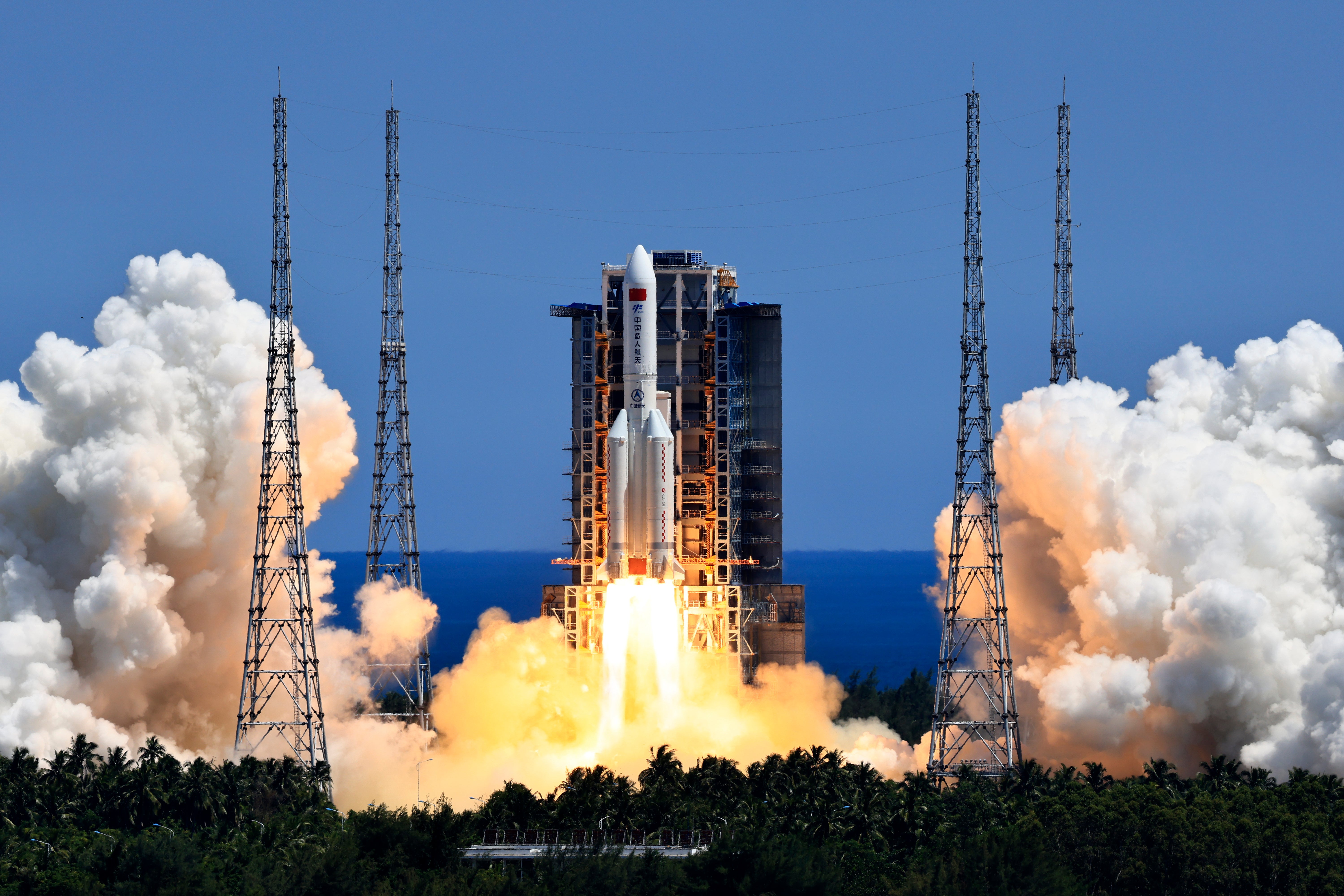China says remains of rocket booster fall to Earth
China's space agency says debris from a rocket that boosted part of China’s new space station into orbit has fallen into the sea in the Philippines

Your support helps us to tell the story
From reproductive rights to climate change to Big Tech, The Independent is on the ground when the story is developing. Whether it's investigating the financials of Elon Musk's pro-Trump PAC or producing our latest documentary, 'The A Word', which shines a light on the American women fighting for reproductive rights, we know how important it is to parse out the facts from the messaging.
At such a critical moment in US history, we need reporters on the ground. Your donation allows us to keep sending journalists to speak to both sides of the story.
The Independent is trusted by Americans across the entire political spectrum. And unlike many other quality news outlets, we choose not to lock Americans out of our reporting and analysis with paywalls. We believe quality journalism should be available to everyone, paid for by those who can afford it.
Your support makes all the difference.Debris from a rocket that boosted part of China’s new space station into orbit fell into the sea in the Philippines on Sunday, the Chinese government announced.
Most of the final stage of the Long March-5B rocket burned up after entering the atmosphere at 12:55 a.m., the China Manned Space Agency reported. The agency said earlier the booster would be allowed to fall unguided.
The announcement gave no details of whether remaining debris fell on land or sea but said the “landing area” was at 119 degrees east longitude and 9.1 degrees north latitude. That is in waters southeast of the Philippine city of Puerto Princesa on the island of Palawan.
There was no immediate word from Philippine authorities about whether anyone on the ground was affected.
China has faced criticism for allowing rocket stages to fall to Earth uncontrolled twice before. NASA accused Beijing last year of “failing to meet responsible standards regarding their space debris” after parts of a Chinese rocket landed in the Indian Ocean.
The country’s first space station, Tiangong-1, crashed into the Pacific Ocean in 2016 after Beijing confirmed it lost control. An 18-ton rocket fell uncontrolled in May 2020.
China also faced criticism after using a missile to destroy one of its defunct weather satellites in 2007, creating a field of debris that other governments said might jeopardize other satellites.
The July 24 launch of the Long March-5B, China’s most-powerful rocket, carried the Wentian laboratory into orbit. It was attached on Monday to the Tianhe main module, where three astronauts live.
The remains of a separate cargo spacecraft that serviced the station fell into a predetermined area of the South Pacific after most of it burned up on reentry, the government announced earlier.